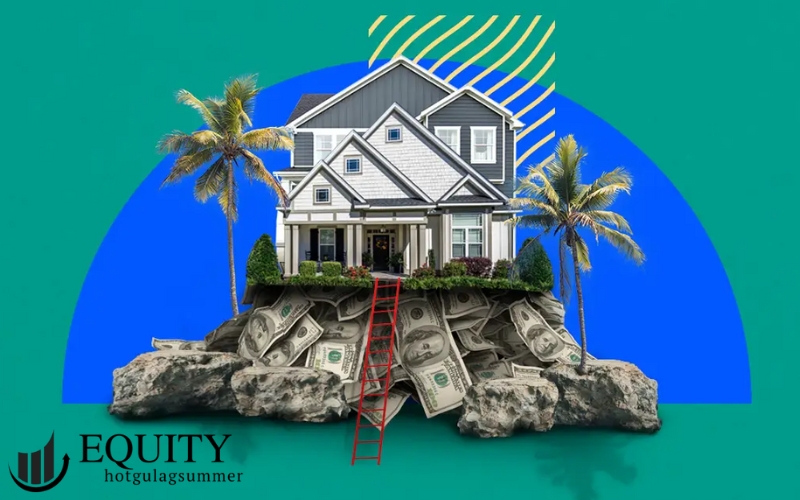Building home equity is an important process that helps you increase your assets and create financial security in the future. Home equity, also known as home equity, represents the value of your home that you actually own after deducting the remaining debt from your mortgage. In the process of building home equity, insurance plays an important role, helping to protect your assets and minimize financial risks when an incident occurs. This article will clarify the methods of building home equity and the relevance of insurance in this process.
1. PAY OFF YOUR MORTGAGE EARLY
One of the most popular methods of building home equity is to pay off your mortgage early. When you buy a home, the mortgage loan you take out from a bank or credit institution will account for a large part of the value of the home. However, each time you pay off the loan, your home equity will increase. Paying off your mortgage early will help you own a larger portion of your home equity in a shorter period of time.
Paying off your mortgage early will not only help you build equity faster, but it will also help you reduce your financial burden. Another important benefit is that it reduces the amount of interest you pay over the life of your loan. However, when you pay off your mortgage early, it is important to have a reasonable financial plan so that you do not feel financial pressure during the process.
The connection between mortgage repayment and insurance is important. During the time you still have a mortgage debt, home insurance is mandatory. This insurance not only helps protect your home from unforeseen events but also protects your financial interests in the event of a loss. By paying off your mortgage early, you will reduce your dependence on the loan and can be more assured about the protection of your assets.
2. INCREASE HOME VALUE
Another way to build equity is to increase the value of your home. This can be done through home improvements or upgrades. Changes like remodeling your kitchen, updating your bathroom, painting your home, or even changing the landscaping can all increase the market value of your home. As your home value increases, so does your home equity.
However, while you are making these improvements, it is important to have adequate insurance coverage. Homeowners insurance helps protect you from things that can happen during construction and renovation, such as fire, accidents, or natural disasters. Additionally, if your home is damaged after the upgrades, insurance will help you repair or compensate for the lost value.
In addition, insurance can help you protect your assets while increasing the value of your home. If you invest in long-term improvements, such as upgrading your electrical system or improving the structure of your home, home insurance will ensure that these improvements are protected from unwanted elements.

3. USE MONEY FROM A HOME EQUITY LOAN OR HELOC
If you already have some equity in your home, you can use a home equity loan to continue building your home. Home equity loans and HELOCs (home equity lines of credit) are two popular financial instruments that allow you to borrow money from the value of your home. When you borrow from your home equity, you can use the money to renovate your home, invest in other financial projects, or pay off debt.
However, when using a home equity loan or HELOC, it is important to have insurance. Home insurance will protect you from incidents that could reduce the value of the home you are using as collateral. If there is an incident such as a fire, insurance will help you protect this loan and not face the loss of your property, which could affect your ability to repay the loan.
4. REDUCE INTEREST RATES
One way to build equity quickly is to reduce your mortgage interest rate. If you can restructure your loan to a lower interest rate, you will save a significant amount of money over the life of your loan. This savings can be used to pay off your debt quickly and build equity in your home.
Insurance can play a supporting role in reducing financial risk when you are working with low-interest loans. Adequate property insurance will help protect your home from risks that could affect your ability to repay your loan. If something happens that you cannot fix, insurance will be a layer of protection to help you maintain your home equity and avoid losing your property.
5. REDUCE YOUR LOAN-TO-VALUE (LTV) RATIO
Loan-to-value (LTV) is the ratio of the loan amount to the value of the home. Reducing this ratio will help you build equity faster, as you will need to pay less on the loan and can own more of the home after each payment. If you can increase your initial capital by saving cash or making additional payments, you will reduce your LTV ratio and increase your home equity.
Insurance is also important in this case, as it helps protect you from events that could affect your ability to repay the loan. If a loss occurs while you still have a lot of mortgage debt, home insurance will help you reduce the loss and continue to maintain your home equity.
CONCLUSION
Building home equity is a long-term process that requires persistence and a sound financial strategy. Methods such as paying off debt quickly, increasing home value, using home equity loans, and reducing LTV ratios are effective ways to increase your wealth. However, throughout this process, insurance plays an indispensable role. Insurance not only protects your assets from unexpected risks but also helps you maintain and protect your home equity throughout your financial journey. Combining home equity building methods with insurance will help you achieve your long-term financial goals in a safe and sustainable way.
